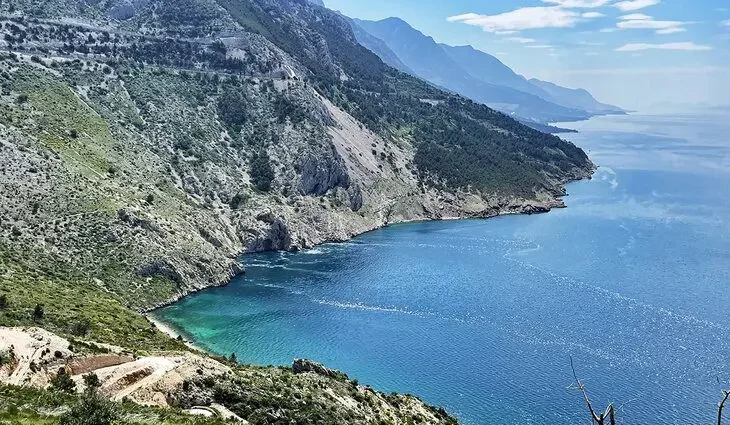Contents
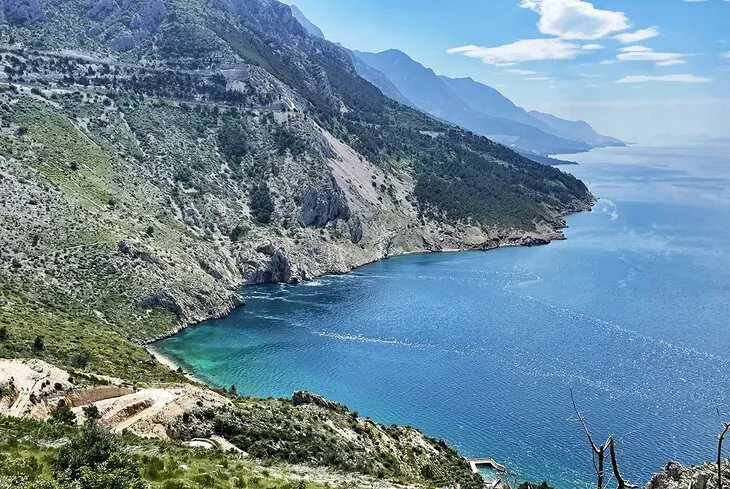
I always knew that Croatia was a gorgeous country; the colorful spreads in splashy travel magazines had told me that for years. But nothing can fully prepare you for the drama of Croatia’s coastline. There is something about it — careening down coastal highways, hugging the mountainous switchbacks, and gazing out to the splinters of mist-covered islands that dot a perfectly glassy, turquoise-colored sea — that you really must experience in person. If you’re going to visit Croatia, a road trip is the way to do it.
Driving in Croatia
Before beginning a road trip, it’s good to know the basics about driving in Croatia. Renting a car is extremely easy. We rented a car from the Franjo Tuđman Airport Zagreb for a full month, which cost about $700 USD. Our credit card has car rental insurance included as a travel perk, which saves us some money whenever we rent cars on our travels.
The road system in Croatia is really well-maintained, with choices of tolled highways and toll-free local roads. A coastal road trip will have you driving on mostly toll-free roads. While it takes longer, you are rewarded with some of the best views in the country. Driving in Croatia is on the right-hand side of the road, as well.
Where to Begin a Road Trip in Croatia
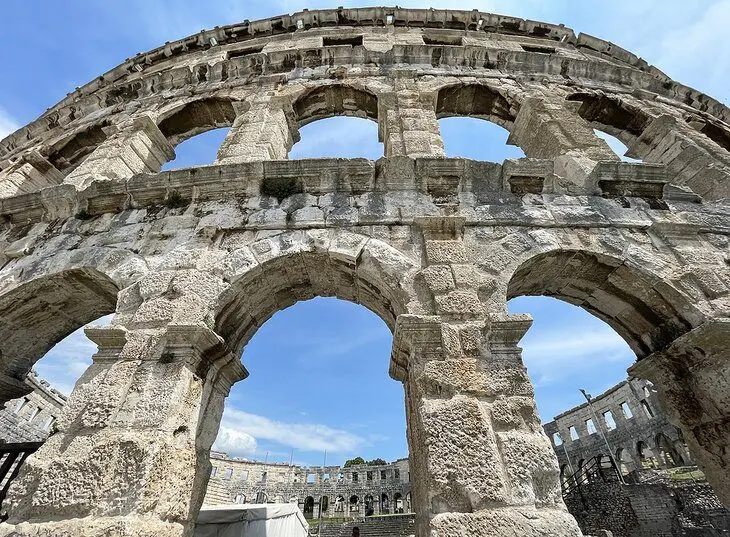
After spending a few days adjusting to the time zone in Zagreb, I made my way west to Istria. Istria is a peninsula in the northwestern corner of Croatia, bordering Slovenia and Italy and jutting out into the Adriatic Sea. It’s a region marked by rolling green hills, slate-colored mountains, rocky coves, and calm, blue-green bays with white pebble beaches. It’s also peppered with both coastal and hilltop Medieval villages waiting to be explored.
The best places to visit in Istria are Rovinj, Pula, and Porec, which are all on the coast. These Medieval towns have stunning Old Towns with centuries-old architecture, white-stone streets, and narrow alleyways. But these towns are also surrounded by some of the best beaches in Croatia. I spent a week driving around Istria popping in and out of the villages, basking on its stony beaches, and crisscrossing the narrow county roads that weave around the countryside.
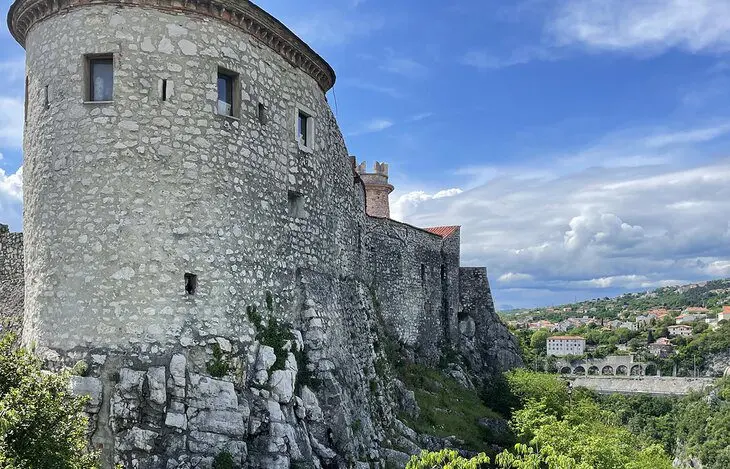
Tip: A great place to stay overnight is the town of Rijeka. One of Croatia’s largest cities, Rijeka is right at the entrance to Istria, just before the elegant seaside city of Opatija. Rijeka itself is a busy port city with a historic Old Town and a Medieval castle, but it’s also conveniently located from Zagreb and equidistant from most places of interest in Istria. Lodging is cheaper in Rijeka than in Istria, so we stayed there for a week while we explored. When you continue on your road trip, Rijeka is perfectly positioned to continue south.
Croatia Road Trip: Istria to Split
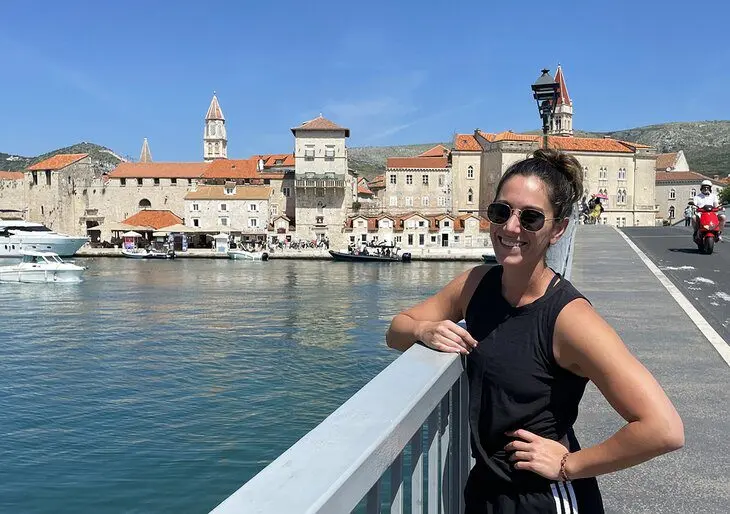
The stretch of coast between Istria and Split is one of my favorites in the country. The drive winds along craggy coves and inlets, with views out to the scattered islands in the distance. This is one of the best stretches of coastline for exploring the historic towns of Croatia, like Zadar, Sibenik, and Trogir. It’s along this section of the Adriatic coast that you can also detour to the island of Pag, one of the few islands you do not need a ferry to access.
Sibenik, in my opinion, is one of the most underrated medieval villages in Croatia. This coastal city is just as beautiful as its more touristy neighbors, Zadar and Trogir, but with a fraction of the crowds. Wander the narrow alleyways or stop for a bite to eat or a refreshing drink along the waterfront.
The most beautiful section of Sibenik is its main plaza, next to the Cathedral of St. James. You can also get a lovely bird’s eye view of the town and the waterfront from the clifftop perch outside of St. John’s Fort.
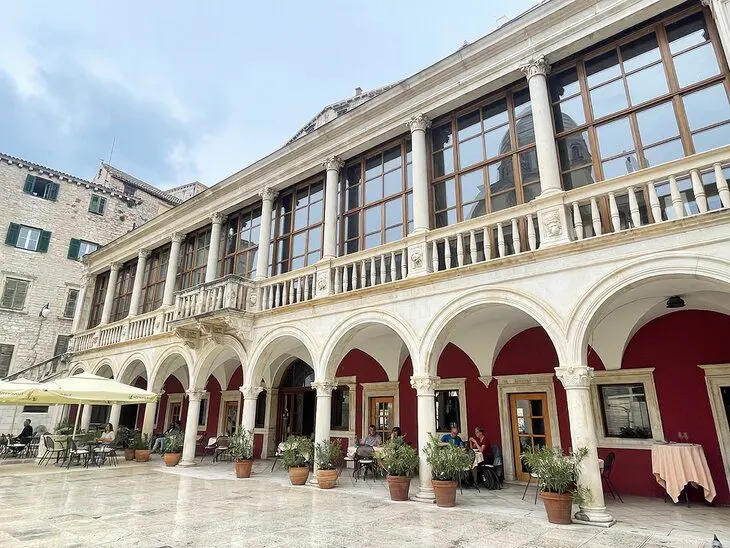
Trogir was my home base during this leg of my Croatia road trip, although it was very far south and became a slog to drive up to Zadar and Sibenik to explore. If I were to do the road trip again, I would have made Sibenik my base, simply for the ease of exploring Zadar and Pag.
But Trogir as a destination is wonderful and I would also suggest staying here a few nights, particularly if you are looking to explore a quintessential Old Town with a glamorous waterfront and a lengthy list of beautiful beaches. Trogir is about 30 minutes north of Split and, in my opinion, is like a mini version of the city.
Its historic Old Town sits on a small island, accessible by foot or car. The walled Old Town has the iconic red tile roofs, church steeples, and city gates that have become synonymous with medieval cities all along the Adriatic Coast. It is bite-sized, as well, and can be explored on foot all within a matter of a few hours.
Of course, it’s very easy to explore Split from Trogir, which I would recommend. Split has many options for accommodation, including some of Croatia’s top beach resorts, but parking, crowds, and prices tend to all be issues here, particularly in Croatia’s high season, which runs from May through September. This is why I recommend Trogir over Split, especially if you have extra time.
Driving from Split to Dubrovnik
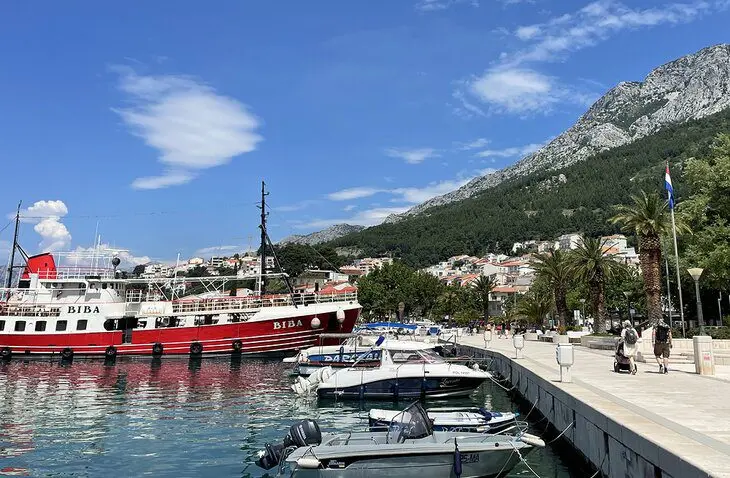
The last leg of my Croatia road trip was the real showstopper: the Dalmatian Coast and the Makarska Riviera. Running between Split and Dubrovnik (more or less), the Dalmatian Coast is what you think of when you close your eyes and picture the Adriatic Coast.
It is along this coastline that you have Croatia’s most famous islands, like Hvar, Brac, Vis, Korcula, and Mljet. The mainland coastline itself is jaw-droppingly beautiful as you wind in and out of beach town after beach town along what is known as the Makarska Riviera. Ever present along the drive are the looming Biokovo mountains, which tower along the Dalmatian coastline.
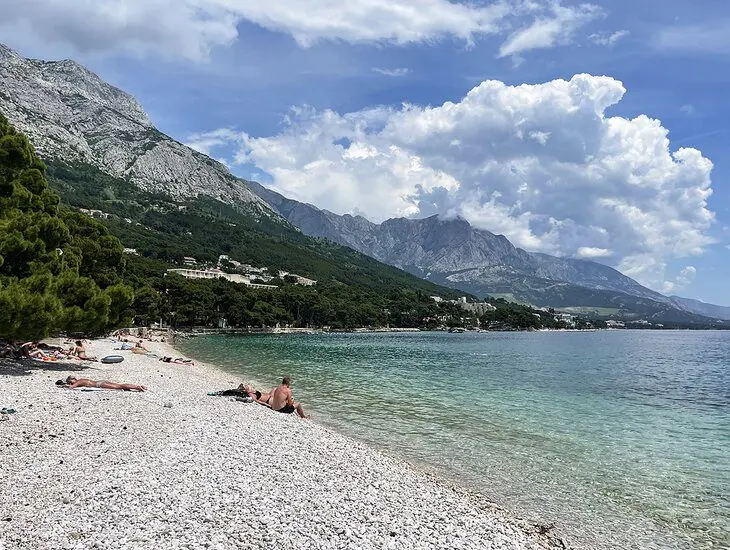
This stretch of coast is a paradise for beach lovers, as some of the best beaches in Croatia are found here. My favorite was Punta Rata, a stunning slice of turquoise-colored water and smooth, round white pebbles on the shore. With the views of the mountains unfolding as far as the eye can see and a color palette of bright turquoise, gleaming white, Mediterranean green, and copper from the village rooftops in the distance, this is the section of coast that will forever be etched into my memory.
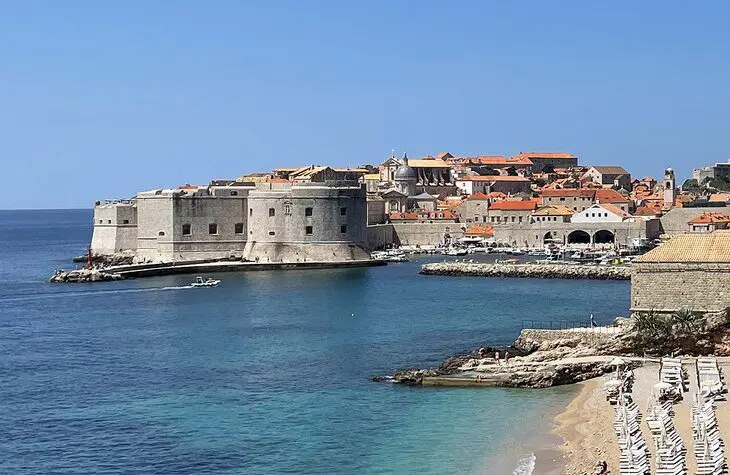
The prize at the end of the journey is the world-famous city of Dubrovnik, legendary for its perfectly preserved walled Old Town — whose epic beauty has earned it leading roles in productions like Game of Thrones, Star Wars: The Last Jedi, and Robin Hood.
Though the city will have you feeling like you’re stepping back in time, its modern energy vibrates with the hum of thousands of tourists, which can be admittedly overwhelming at times. But the epic beauty of the city makes up for it, with its stone streets, boat-filled harbor, and nearby pebbly beaches, plus its world-renowned hotels and restaurants. If you end your road trip here, then you will have seen the very best sights along Croatia’s coastline.
Or, if you’re feeling adventurous, you can always press on and cross the border into Montenegro — which is exactly what we did.
But that is another story for another time.










